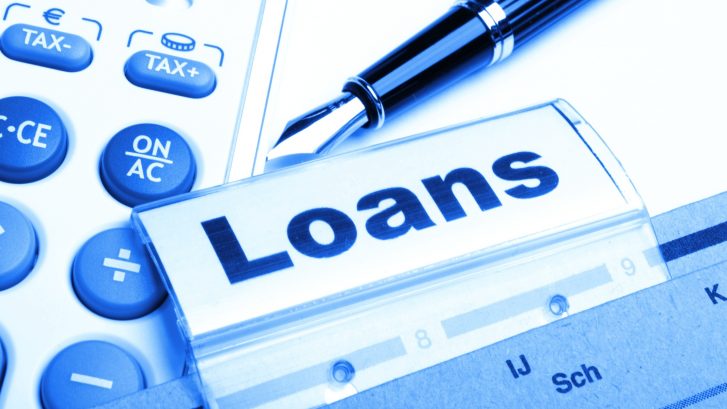How to Lower Small Loan Interest Rates
There’s nothing wrong with having to take out a loan. In fact, it can be a great way for entrepreneurs to acquire the money they need to get their business off the ground.
However, people tend to run into problems when they don’t properly budget for paying back the money they borrow. Sometimes, though, it’s not always entirely the borrower’s fault.
No matter how solid their repayment plan is, some people who take out a loan are crippled by sky-high interest rates.
This isn’t only true about large loans, either. Small loans can be as difficult to pay off as bigger loans if the interest rate is high enough.
Luckily, there is plenty that you can do in order to lower your interest rate. Let’s take a look.
Is paying off your small loans becoming too expensive? Use this guide to lower your interest rate.
Borrow for a Shorter Term
When you borrow money for a shorter period, the lender has to spend less time monitoring your payments and making sure you’re on track to repay all of your debt.
The lender will also get their money back (plus interest) earlier. Thus, they may be inclined to offer you a lower interest rate if you sign an agreement to pay back your small loan over six months as opposed to two years.
If you know that you may have difficulty paying off loans, a shorter loan term can help keep the total interest that you incur as low as possible.
Improve Your Credit Score
One of the factors that lenders use to decide the interest rate of a loan is how reliable the borrower seems.
If a potential borrower has a stellar credit score and a solid history of making payments on time, then there is no need to give them a high interest rate.
Conversely, people with low credit scores and spotty repayment history will find themselves with higher rates than their more responsible financial peers.
But, there’s good news! If your credit score is poor or on the lower end of the average range, you can work to improve it before seeking out a loan. This will ensure you pay a smaller total amount than you would otherwise.
It’s still possible to get a loan with bad credit, but it’s unlikely. Even if you do, you’re not going to like the interest rate that comes with it.
Choose a Variable Interest Rate
Most lenders offer borrowers the option to choose between either a fixed interest rate or a variable interest rate. As both names suggest, the titles have to do with whether or not the interest will change during the repayment period.
A fixed rate will remain the same for the entire duration that the borrower repays the loan. But, this type of interest rate tends to be on the higher side.
On the other hand, a fixed interest rate could potentially result in you paying less when all is said and done.
Inflation, supply and demand, and government regulation are all factors that influence standard interest rates.
By doing a bit of research, you’ll be able to determine whether interest rates are going to rise or fall in the near future with a fair bit of accuracy.
If interest rates appear to be on a downward trend, choosing a variable interest rate is the better of the two options because the rate is unlikely to rise throughout the duration of your loan repayment.
Browse Different Lenders
It’s very unlikely that you’ll ever have only one lender to choose from. Similar to dealing with any other professional service, you have the capability to shop around for a lender that’s right for you.
Even if two lenders are in close proximity to each other, the loan terms and interest rates can be drastically different.
Thus, you should always take the time to browse if you feel as though the interest rate a lender offers you will be an issue.
Sometimes, however, you may have to compromise. Lenders who offer lower interest rates may not offer the right small loans options for you. Be wary of this during your search.
Offer Collateral
As previously mentioned, one of the ways lenders determine interest rates is by assessing how much risk they’re taking by giving money to a specific borrower.
If a lender is not confident in your ability to repay the loan during the specified time period, you may want to offer collateral in order to sway their decision.
Collateral could include a wide range of assets that you have, such as your home, your car, or even investments that you have. Should you fail to repay your loan, the lender would have the legal right to take your collateral as a form of payment.
Due to this, you should never offer anything for collateral that you’re not prepared to lose.
If you do choose to put up something vital like a car or house, you need to be absolutely sure you can repay the loan.
Have a Friend or Family Member Cosign
If you’re having trouble managing your small loans due to the interest rates, consider having a friend or loved one cosign the loan agreement with you.
This process is similar to collateral in that it can cause a lender to have more trust in you if they were on the fence about whether or not you would be suitable for a loan.
However, you should understand that failure to repay the loan under the given terms can have detrimental effects on your cosigner. Credit score penalties, late fees, and even wage garnishment are all possible.
For the sake of the other individual and your relationship with them, never have someone cosign a loan (even small loans) if you are not prepared to pay them back in full plus interest.
Even Small Loans Can Be Difficult to Manage
But, reducing your interest rate as much as possible with the above tips will make sure they are easier to handle. And, you’ll keep your family and friends out of trouble, too.
Small loans can sometimes be a necessary part of life, but you should only take them out if you can repay them. Want to learn more about managing your finances? Check out our blog.


